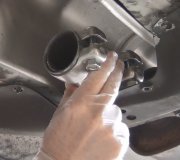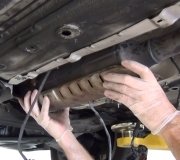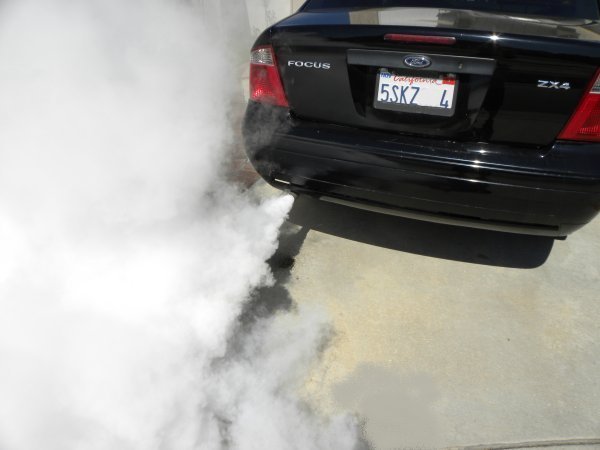Your post is hard to read but I DO understand you're asking about testing for proper operation. That is done by the car, not the mechanic. '96 and newer vehicles have the "OBD2", (on-baord diagnostics, version 2), emissions system. It has an oxygen sensor after each catalytic converter that tells the Engine Computer how the converter is working. There's two parts to the emission control system. The first part calculates the perfect amount of fuel to go into the engine for any set of conditions. The second part is the catalytic converter that cleans up what occurs in spite of the first part.
The muffler has nothing to do with emissions. It's job is to quiet the horrendous noise the engine makes. Replacing the muffler won't have any effect on the rest of the system.
Often by the time a muffler has rusted through, other parts are just as bad, so it's common to need more parts than just the muffler. Some manufacturers weld the pipes and muffler together. That makes it much more difficult to replace individual parts. Most mechanics will opt to replace numerous parts in that case because it is faster for them and less expensive in the long run for you.
When a leaking part is replaced, ... The muffler in this case, ... The mechanic is supposed to inspect the rest of the system for leaks because the goal is to have no leaks when the job is done. If your mechanic achieved that goal without selling you additional parts, you should thank him, and perhaps take him a box of cookies, (chocolate chip)!
SPONSORED LINKS
Monday, April 21st, 2014 AT 3:15 PM



